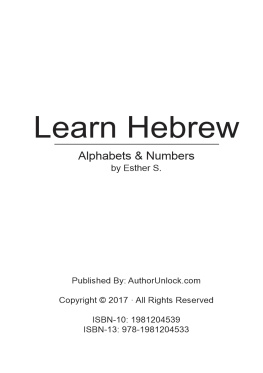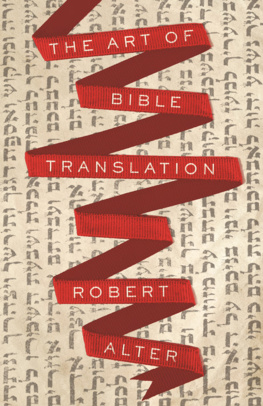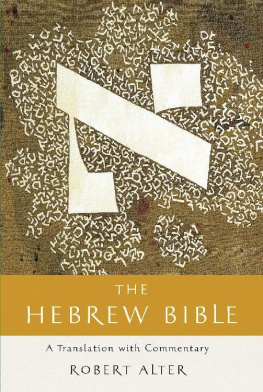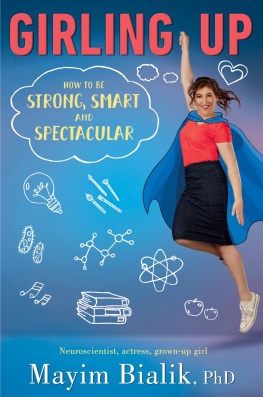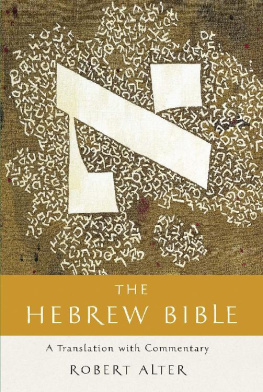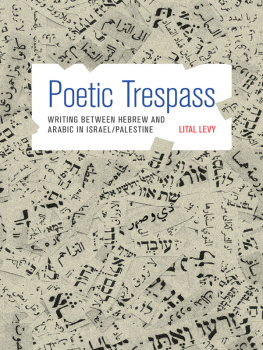Random Harvest
Modern Hebrew Classics
David Patterson , Series Editor
This series presents formative works of lasting significance that have appeared in Hebrew, as well as more recent critical work. The series is designed to acquaint the English reader with the quality of modern Hebrew writing in its period of revival and renaissance and to reflect the cultural, religious, and social conditions and conflicts in Jewish life in the nineteenth and early twentieth centuries.
Random Harvest: The Novellas of Bialik,
translated by David Patterson and Ezra Spicehandler
The Experienced Soul: Studies in Amichai,
edited by Glenda Abramson
Joseph Perl's Revealer of Secrets: The First Hebrew Novel,
translated with an introduction and notes by Dov Taylor
Tradition and Trauma: Studies in the Fiction of S. J. Agnon,
edited by David Patterson and Glenda Abramson
Random Harvest
The Novellas of Bialik
translated by
David Patterson
Ezra Spicehandler
First published 1999 by Westview Press
Published 2019 by Routledge
52 Vanderbilt Avenue, New York, NY 10017
2 Park Square, Milton Park, Abingdon, Oxon OX14 4RN
Routledge is an imprint of the Taylor & Francis Group, an informa business
Copyright 1999 by Taylor & Francis, Copyright
for the Original works by Dvir Publishing House.
All rights reserved. No part of this book may be reprinted or reproduced or utilised in any form or by any electronic, mechanical, or other means, now known or hereafter invented, including photocopying and recording, or in any information storage or retrieval system, without permission in writing from the publishers.
Notice:
Product or corporate names may be trademarks or registered trademarks, and are used only for identification and explanation without intent to infringe.
Library of Congress Cataloging-in-Publication Data
Bialik, Hayyim Nahman, 1873-1934.
[Novellas. English. Selections]
Random harvest: the novellas of Bialik/translated by David
Patterson, Ezra Spicehandler.
p. cm.(Modern Hebrew classics)
Contents: Random harvestBehind the fenceThe shamed trumpet
Big HarryShort FridayThe legend of the three and four.
Includes index.
ISBN 0-8133-6711-5 (hc) ISBN 0-8133-6559-7 (pb)
1. Bialik, Hayyim Nahman, 1873-1934Translations into English.
I. Patterson, David, 1922- . II. Spicehandler, Ezra. III. Title.
IV. Series.
PJ5053.B5A6 1999
892.4'35dc21 99-10677
CIP
ISBN 13: 978-0-367-28498-5 (hbk)
Although ayyim Naman Bialik is known primarily as a poetperhaps the greatest Hebrew poet in the past six hundred yearshis novellas and other fictional prose writings are also of the highest quality and deserve the attention of a wide reading public.
Four of his stories, translated into English by I. M. Lask, came out in New York in 1939 under the title Aftergrowth and Other Stories, and the same translator had a fifth story appear under the title "Aryeh the Brawny" in Israel Argosy 7 in 1960. Similarly, Herbert Danby's translation of "The Legend of the Three and Four" was included in And It Came to Pass, published in New York in 1938. These translations have great merit, but they have been out of print and virtually unobtainable for many decades. Moreover, over the past half century English itself has undergone considerable changes and acquired a greatly expanded vocabulary.
In the light of these factors, a new translation of Bialik's five novellas, together with The Legend of the Three and Four (Second Version), seems both appropriate and timely. These works are presented to the English-language reader in the hope that they may help to illustrate the quality of modern Hebrew literature in its period of revival.
David Patterson
Ezra Spicebandler
At every stage in the preparation of this volume we translators have benefited from the tireless and good-humored efforts of Jackie Finlay. We would also like to thank the Oxford Centre for Hebrew and Jewish Studies and particularly the able library staff for their unfailing and courteous aid.
This book has been published with the assistance of the Institute for the Translation of Hebrew Literature in Ramat Gan, Israel. Permission to publish the English translations granted by Zmorah Bitan Publishers, Tel Aviv, is gratefully acknowledged.
D. P. and E. S.
Oxford and Cincinnati
ayyim Naman Bialik (1873-1934) is considered to be the greatest modern Hebrew poet. His career spans a crucial period in Jewish history, and he belongs to the golden age of Eastern European Hebrew and Yiddish literature.
Biography
Born in the village of Radi in the Ukrainian province of Volhynia to a middle-class family that had become impoverished, Bialik was raised in the nearby town of Zhitomir, whose Jewish community had still preserved an almost medieval religious culture. He received a strictly traditional education (Bible, Talmud, and Midrash) and at the age of seventeen (1891) was sent to study at the great Yeshivah (Talmudic academy) of Volozhin. By the time he arrived there, he had already fallen under the influence of the Haskalah, the Jewish enlightenment movement, which had aspired to integrate Jews into the predominant European culture of the countries in which they resided. The naive Haskalah hopes, however, were shattered by the Russian government's adoption of reactionary policies following the assassination of Czar Alexander II in 1881. Most Russian Jews despaired of ever gaining emancipation under the oppressive czarist regime. Millions, driven by poverty and discrimination, began a mass emigration to Western Europe or to the United States, where economic and political conditions were more amenable.
A large segment of the Jewish intelligentsia who remained in Russia was attracted either to its rising revolutionary movements or to the ovevei Tsion (Lovers of Zion), the pre-Zionist moveme and its call for Jewish auto-emancipation in a reestablished Jewish homeland in Ottoman Palestine. Bialik and many of his fellow students became supporters of the ovevei Tsion, and many became followers of Aad Ha-am, who advocated a cultural Zionism, which would primarily attempt to preserve the ethical values of Judaism by redefining them in secular terms. Although not fully rejecting the political objectives of Zionism, Aad Ha-am argued that the post -Haskalah generation had to solve what he called the problem of Judaismthat is, how to maintain Jewish cohesion in an age in which religion was losing its sustaining power. He urged that the primary goal of Zionism be to establish a Jewish center in the ancient homeland, which would serve as a focal point for a Jewish cultural renaissance.
Bialik began writing Hebrew poetry even before he left Zhitomir. Anxious to publish his early poems, he went to Odessa, then the center of the Lovers of Zion and a capital of Hebrew letters. During his first short stay in Odessa, he met I. H. Ravnitsky, the editor of Ha-Pardes, an influential Aad Ha-amist journal. Ravnitsky recognized Bialik's literary talent and agreed to publish one of his earliest poems. Unable to establish himself in Odessa, however, Bialik returned to Zhitomir. By the time he married in 1892, he was recognized as one of the most innovative and talented young Hebrew poets of his generation. In the 1890s, he engaged unsuccessfully in the lumber business, a trade that both his own family and his father-in-law had pursued. Like many Hebrew writers of his generation, he was compelled to turn to the teaching of Hebrew for his livelihood. Nevertheless, Bialik, encouraged by Ravnitsky, first his mentor, then his close friend and collaborator, continued writing poetry.





